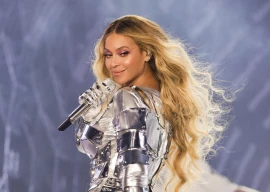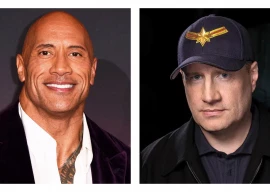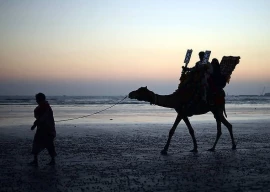
An official familiar with the Nawaz-Modi talks in the Russian city of Ufa told The Express Tribune that New Delhi was still reluctant to resume the peace process until other issues, such as the trial of Mumbai attack suspects, were brought to a close.
Read: Salman Khurshid to Modi: Don't expect dramatic results from Pakistan visit
The official, who didn’t wish to be named, said that Pakistan, on the other hand, was persuading India to resume dialogue on all issues, including the longstanding Kashmir dispute.

He disclosed that although the Ufa meeting took place at the request of India, Russia and China, the two dominant forces at the Shanghai Cooperation Organisation (SCO), encouraged the two leaders for the meet-up. “Both Russia and China did not want the SCO summit to be undermined by the ongoing tensions between Pakistan and India,” the official explained.
However, back in Pakistan, the government came under scathing criticism from certain opposition parties, which accused Prime Minister Nawaz of giving in to India’s demand. These parties were, in particular, expressing concerns over what they called the prime minister’s failure to raise the Kashmir dispute as well as India’s alleged interference in Pakistan’s internal matters.
A five-point joint statement issued after the Ufa talks laid emphasis on discussions related to terrorism, including the issue of Zakiur Rehman Lakhvi, the alleged mastermind of the Mumbai attacks.
Read: Nawaz-Modi huddle draws mixed response
There was a reference to overall ties in the joint statement; “India and Pakistan have a collective responsibility to ensure peace and promote development. To do so, they are prepared to discuss all outstanding issues.”
However, there was no mention of either Kashmir or the fate of the composite dialogue suspended following the November 2008 Mumbai attacks.
In an attempt to explain the government’s stance, Prime Minister’s Adviser on National Security and Foreign Affairs Sartaj Aziz will address a news conference in Islamabad today (Monday).
Asked whether any decision was taken regarding the resumption of the composite dialogue during meeting between Nawaz and Modi, Aziz told The Express Tribune that he would talk about the issue during the press conference without going into further details.
Aziz is expected to respond to the criticism by the opposition parties and try to quash the impression that Premier Nawaz had failed to raise Kashmir and other key subjects in his meeting with Modi.
Published in The Express Tribune, July 13th, 2015.
















1713861311-0/Untitled-design-(11)1713861311-0-270x192.webp)





















COMMENTS (21)
Comments are moderated and generally will be posted if they are on-topic and not abusive.
For more information, please see our Comments FAQ